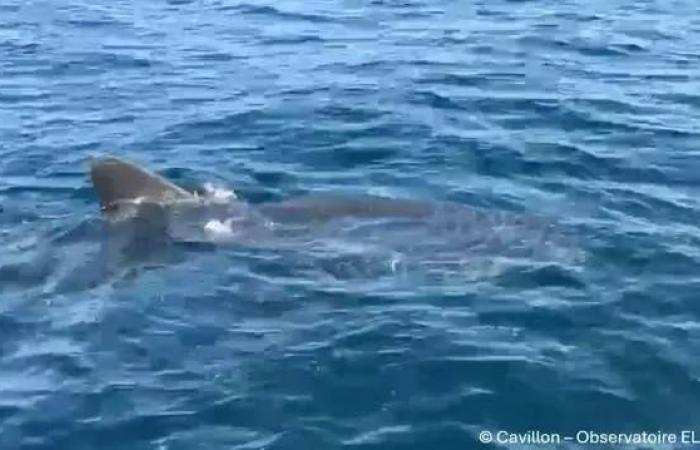
The meeting was as impressive as it was unexpected.
A few days ago, while sailing in the waters of the Port-Cros national park, in Hyères, a fisherman encountered a great white shark.
A rare scene in the Mediterranean, immortalized and widely relayed both on the networks and in the media.
Update with Nicolas Ziani, founder and scientific director of the Phocaean Shark Study Group.
Next December, we will publish new data on the species in France, which go well beyond opportunistic observations.
What can we say about the espere observed in the Var waters a few days ago?
Since the Middle Ages, there have been 794 specimens of great white sharks. A number that has dropped considerably, as it is an endangered species.
90% of the population has disappeared in the Mediterranean, according to the data we have, since the 1600s. The cause: massive accidental captures between the 80s and 90s, particularly by bottom trawls.
It is an extremely endangered species rather than threatening.
It is not yet known why the shark approached the fishing boat, although the food hypothesis seems very plausible, because the great white shark is very fond of tuna.
What explains its presence on our coasts?
In reality, great white sharks do not come to us, they live there. There are different populations of great white sharks around the world, including South African, Australian and Mediterranean, which are genetically distinct despite some similarities.
They are part of the species imported in the wave of migration from the Atlantic when the Mediterranean was created and were discovered for the first time by European scientists.
So its presence is not rare?
Indeed it is not, it is the fact of observing it that is. We lack scientific data to be able to close the loop of their reproduction, but we know that nursery sites are located in the Sicily Channel as well as in the Tunisian Gulf.
On the other hand, encounters between man and the great white shark remain extremely rare. Opportunistic observations, like those in Hyères recently or in the Camargue in 2022, we don't see them every year.
It is a difficult species to study, because it is difficult to approach. Great white sharks travel several hundred thousand kilometers per month. Tracking their movements is very complicated.
No link can be established with global warming?
No, especially since the great white shark has a particularity: it is equipped with a heat exchanger, which we call the admirable network, in other words a venous network which allows it to heat its blood and thus have independence. thermal. It is found both in waters at 5°C and 25°C.





